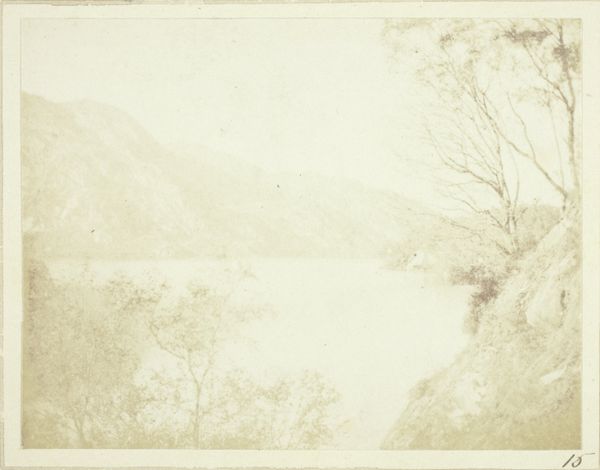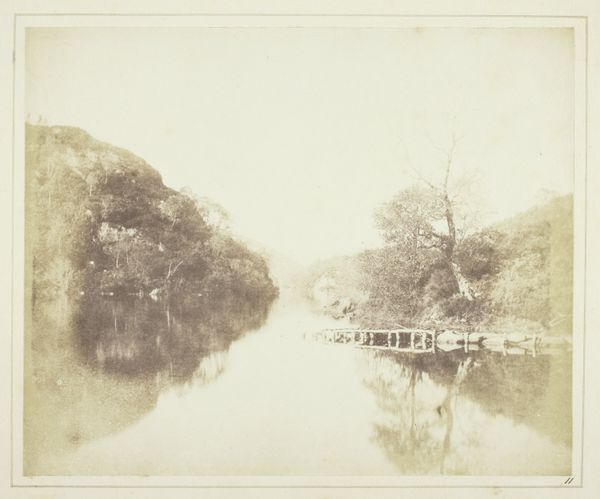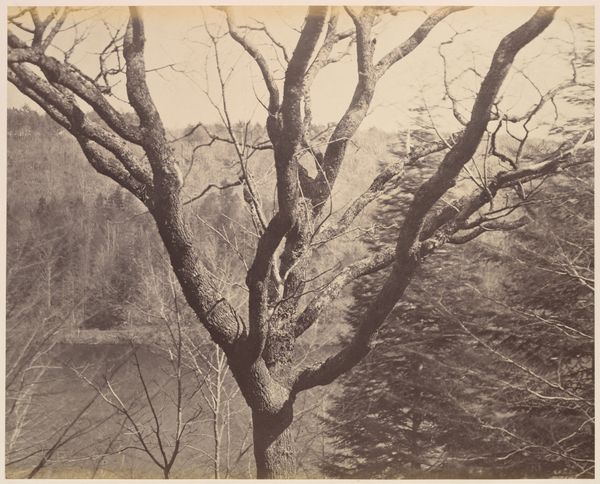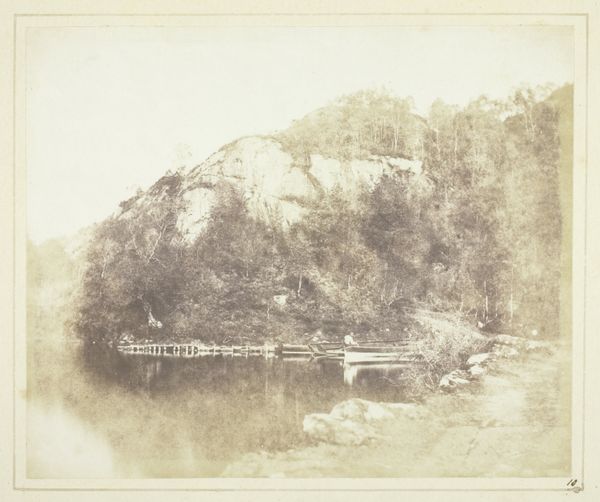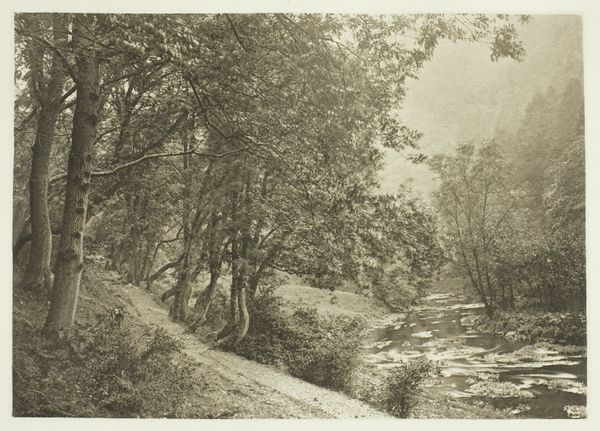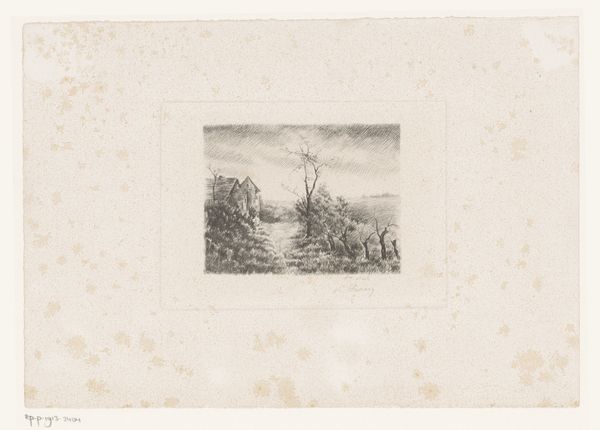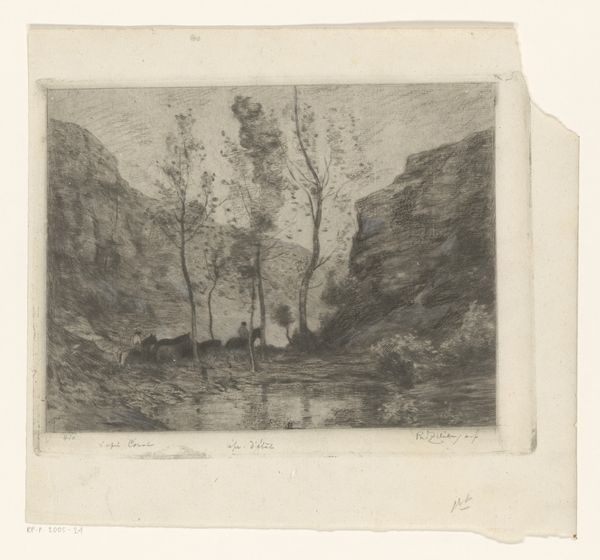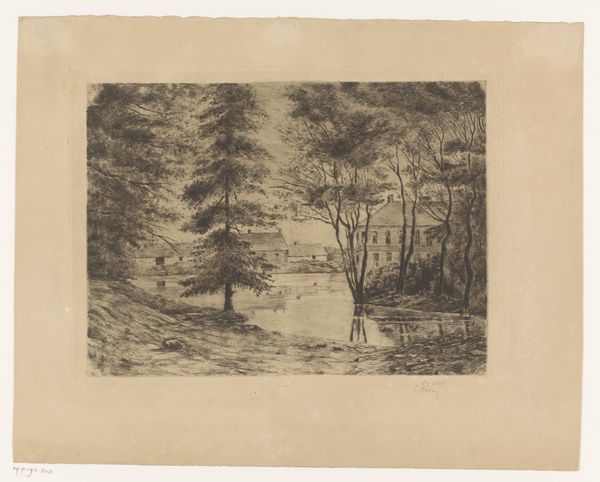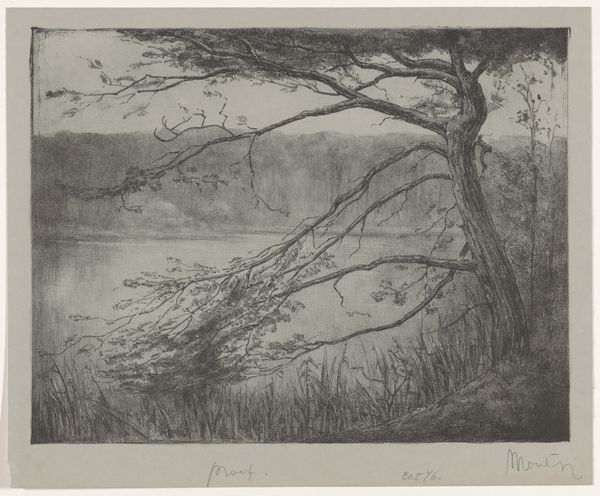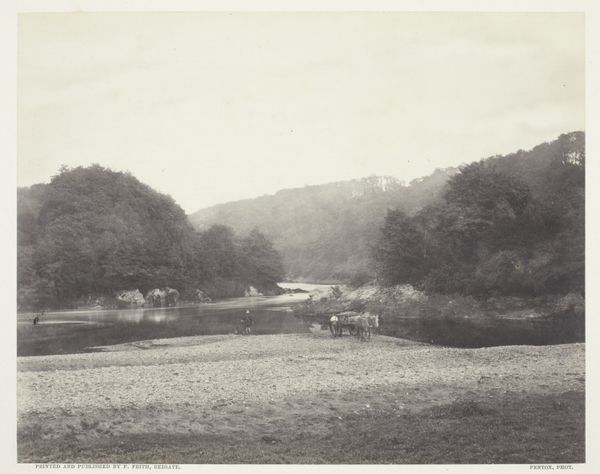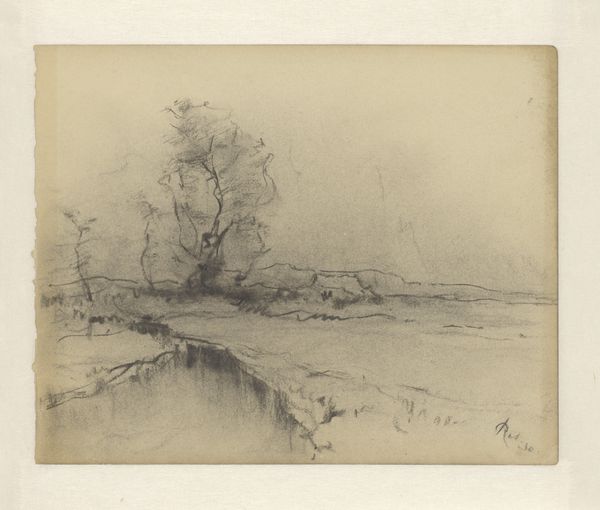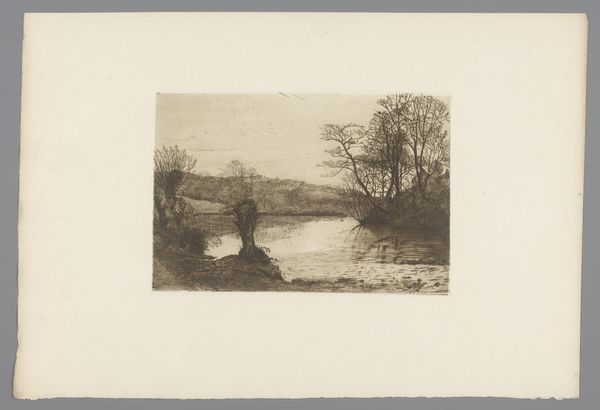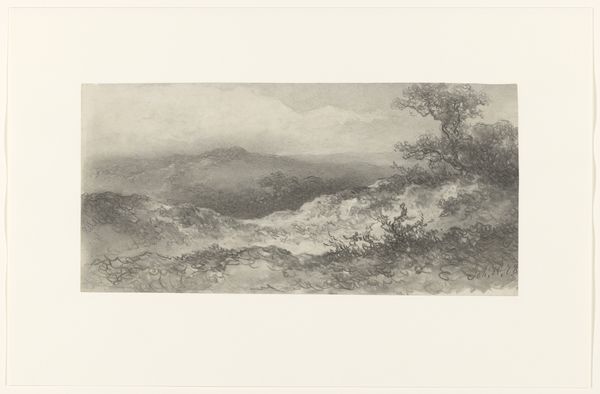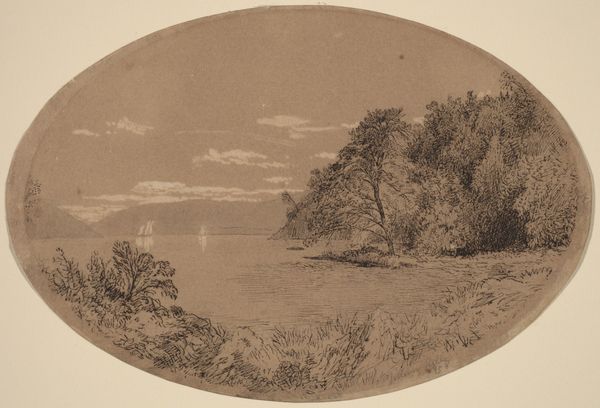
print, daguerreotype, paper, photography, albumen-print
#
16_19th-century
# print
#
landscape
#
daguerreotype
#
paper
#
photography
#
romanticism
#
albumen-print
#
realism
Dimensions: 16.9 × 20.6 cm (image/paper); 24.1 × 30.6 cm (page/mount)
Copyright: Public Domain
William Henry Fox Talbot made this photograph of Loch Katrine using his innovative calotype process. This early photographic technique involved coating paper with silver iodide, creating a negative that could be used to produce multiple positive prints. Notice the soft, almost dreamlike quality of the image. This is in part due to the paper fibers, which subtly diffuse the light. But it’s also an index of the process itself. Unlike later photographic methods that emphasized sharp detail, the calotype yielded a more atmospheric effect. The process also speaks to the labor involved. Each print required careful chemical preparation, exposure, and development. Talbot wasn't just pointing and shooting; he was deeply engaged in a hands-on process, blurring the lines between science and art. Photography, at this early stage, was as much craft as it was technology. It reminds us that even the most seemingly ‘mechanical’ arts are rooted in human skill and ingenuity.
Comments
No comments
Be the first to comment and join the conversation on the ultimate creative platform.
